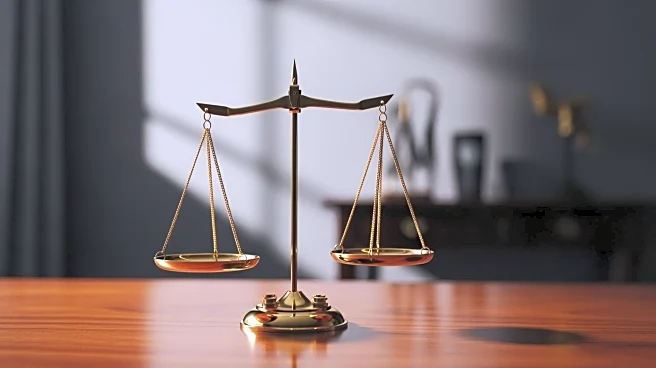What's Happening?
Chancellor Rachel Reeves has not ruled out the possibility of raising income tax in the upcoming Budget, despite previous Labour election pledges to maintain current rates. Reports suggest that Treasury officials are actively discussing a potential increase
in the basic rate of income tax, which could generate over £8 billion. Reeves emphasized her commitment to supporting working people by keeping taxes low but acknowledged the need to address the government's financial shortfall. The Institute for Fiscal Studies has indicated that Reeves may need to raise taxes to cover a £22 billion gap in government finances, exacerbated by downgraded productivity forecasts and increased borrowing costs.
Why It's Important?
The potential increase in income tax could have significant implications for the UK economy and taxpayers. Raising taxes may help address the government's financial deficit, but it could also place additional financial burdens on individuals and businesses. The decision is particularly sensitive given the current economic climate, where cost of living concerns remain prevalent. If implemented, the tax rise would mark the first increase in the basic rate since the 1970s, potentially affecting millions of taxpayers. The move could also impact political dynamics, as it challenges Labour's previous commitments and may influence voter sentiment.
What's Next?
As the Budget approaches, further discussions and negotiations are expected within the Treasury and among political leaders. Reeves will need to balance fiscal responsibility with political commitments and public expectations. Stakeholders, including economists and political analysts, will closely monitor developments, assessing the potential impact on the economy and public finances. The Chancellor's decisions will likely influence future fiscal policies and government strategies, with potential reactions from opposition parties and public interest groups.















